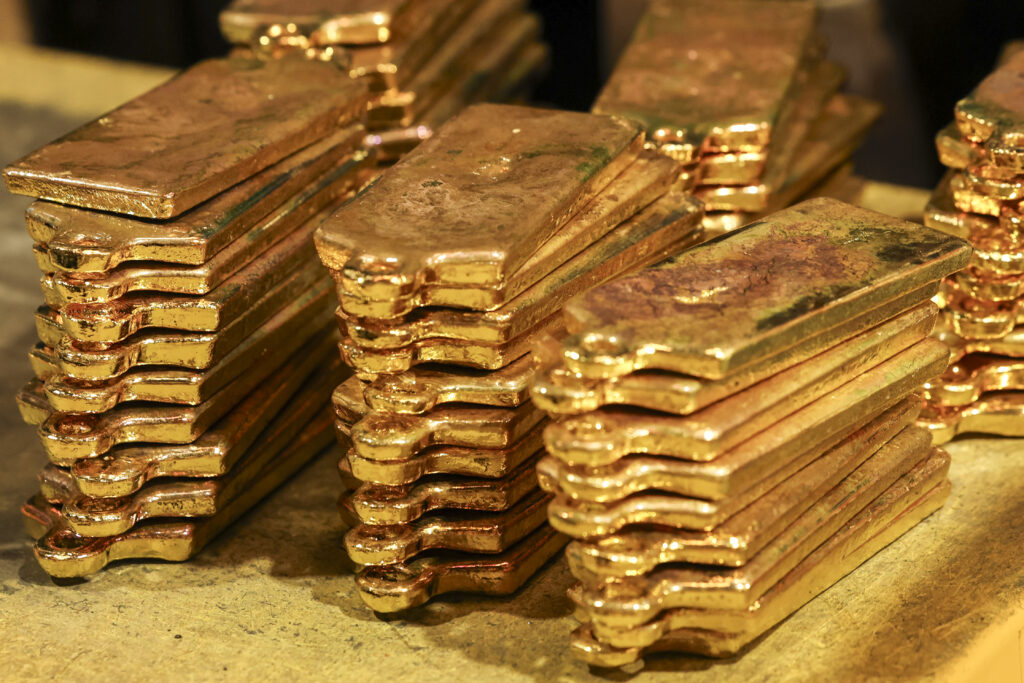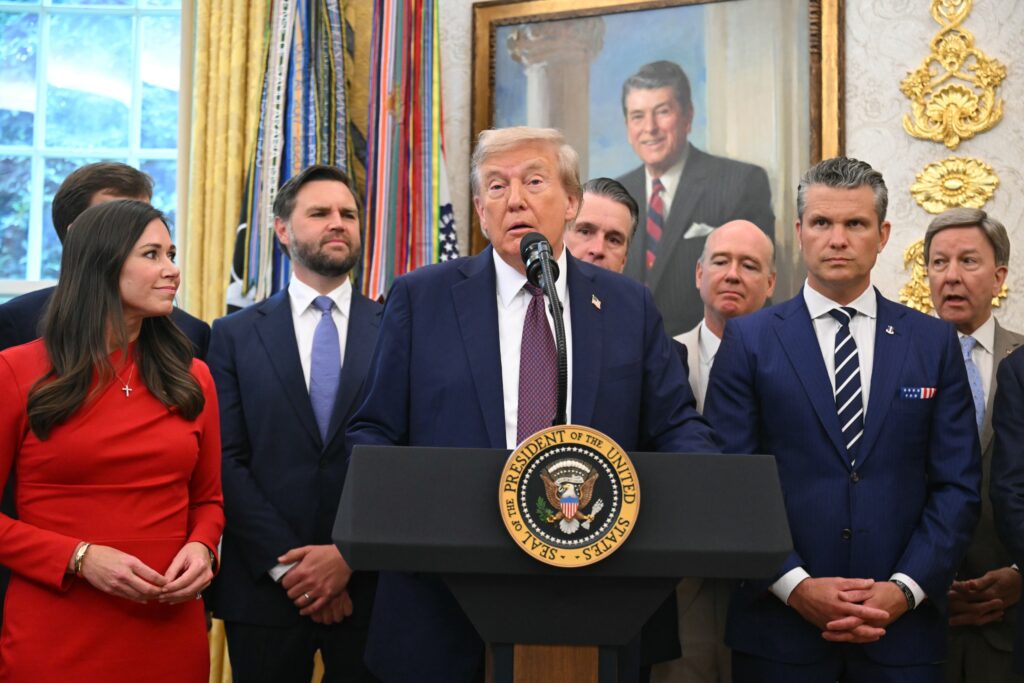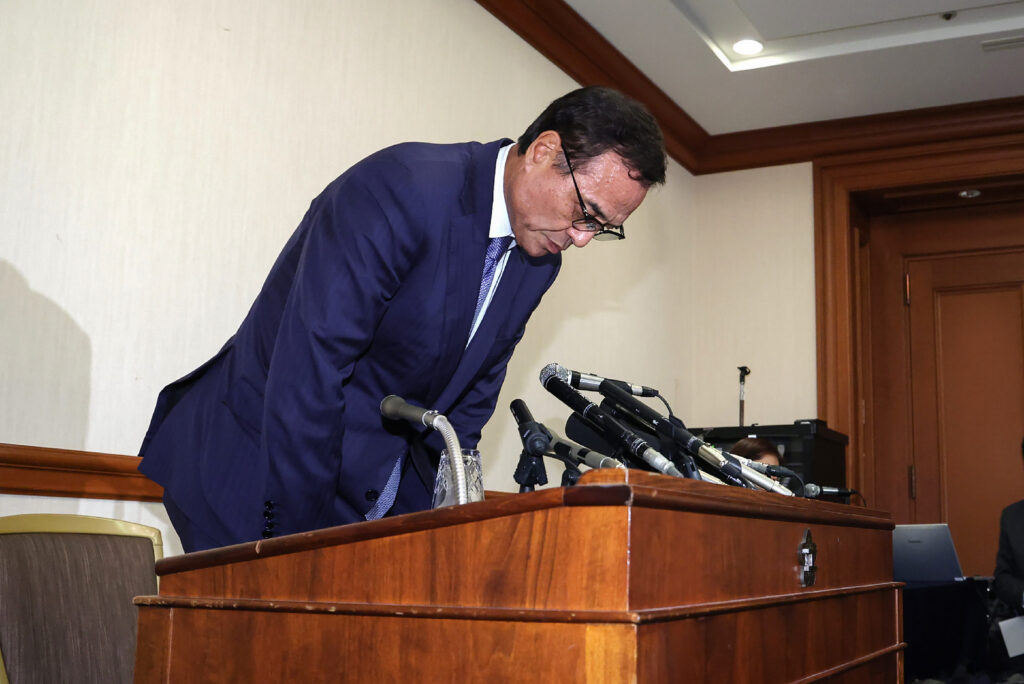Japan’s long-term borrowing costs, gold hit record highs
A global bond selloff extended into Asia on Wednesday with yields in Japan hitting record levels, while gold reached a new peak as investors fret about public finances in countries from Japan to the United States.Investors in Japan are also reacting to concerns that Prime Minister Shigeru Ishiba might soon be forced to step down after the number two in his ruling Liberal Democratic Party (LDP) offered to quit on Tuesday over July’s disastrous upper house election.Asian indexes were largely in the red, with Tokyo down 0.9 percent and Shanghai more than one percent lower at the close.European markets opened higher.Yields on 30-year Japanese government bonds rose to an all-time high of 3.29 percent, while 20-year yields reached 2.69 percent — their highest since 1999.”The Japanese 30-year yield’s breach of 3.25 percent may prove far more destabilising than local politics,” Stephen Innes of SPI Asset Management wrote in a note.”A clean break above that threshold doesn’t just unsettle Japanese savers; it forces insurers, pensions, and reserve managers worldwide to recalibrate their models. Once those rebalancing dominoes start to fall, equity markets everywhere feel the aftershocks,” Innes said.Japan is due to hold a 30-year bond auction on Thursday, though buyer interest has been muted.”The selloff in long-duration bonds is fuelled by several factors: concerns over ballooning sovereign debt, political hurdles to fiscal tightening… and structurally higher inflation,” said Ipek Ozkardeskaya, senior analyst at Swissquote Bank.The selloff in Japanese debt mirrors widespread moves in the United States and Europe, with investors spooked over substantial piles of government debt globally.The US 30-year yield flirted with the five-percent mark, while Britain’s 30-year gilt yield climbed to levels not seen since 1998. In France, the 30-year yield spiked to 4.5 percent for the first time since 2009 — highlighting concerns around a budget standoff in Paris.Traders have been turning to traditional safe havens, pushing gold to a record high of $3,546.96 an ounce.Prices have risen five percent over the last six days, with traders nervous over the US Federal Reserve’s future after President Donald Trump attempted to fire Fed Governor Lisa Cook.”President Trump’s return to the White House may have altered investor preference of safe havens,” said Carol Kong of the Commonwealth Bank of Australia.”Gold outperformed, gaining more than 30 percent year‑to‑date. The risk is the USD further loses its safe haven appeal if President Trump continues to undermine the independence of key US institutions, particularly the Federal Reserve.”- Key figures at around 0830 GMT -Tokyo – Nikkei 225: DOWN 0.9 percent at 41,938.89 (close)Hong Kong – Hang Seng Index: DOWN 0.6 percent at 25,343.43 (close)Shanghai – Composite: DOWN 1.2 percent at 3,813.56 (close) London – FTSE 100: UP 0.4 percent at 9,151.80Paris – CAC 40: UP 0.8 percent at 7,715.60Frankfurt – DAX: UP 0.5 percent at 23,611.50New York – Dow: DOWN 0.6 percent at 45,295.81 (close)Euro/dollar: DOWN at 1.1632 from $1.1640 on TuesdayPound/dollar: DOWN at 1.3365 at from $1.3394Dollar/yen: UP at 148.78 from 148.37 yen Euro/pound: UP at 87.03 pence from 86.92 penceBrent North Sea Crude: DOWN 0.3 at $68.91 per barrelWest Texas Intermediate: DOWN 0.3 percent at $65.39 per barrel







